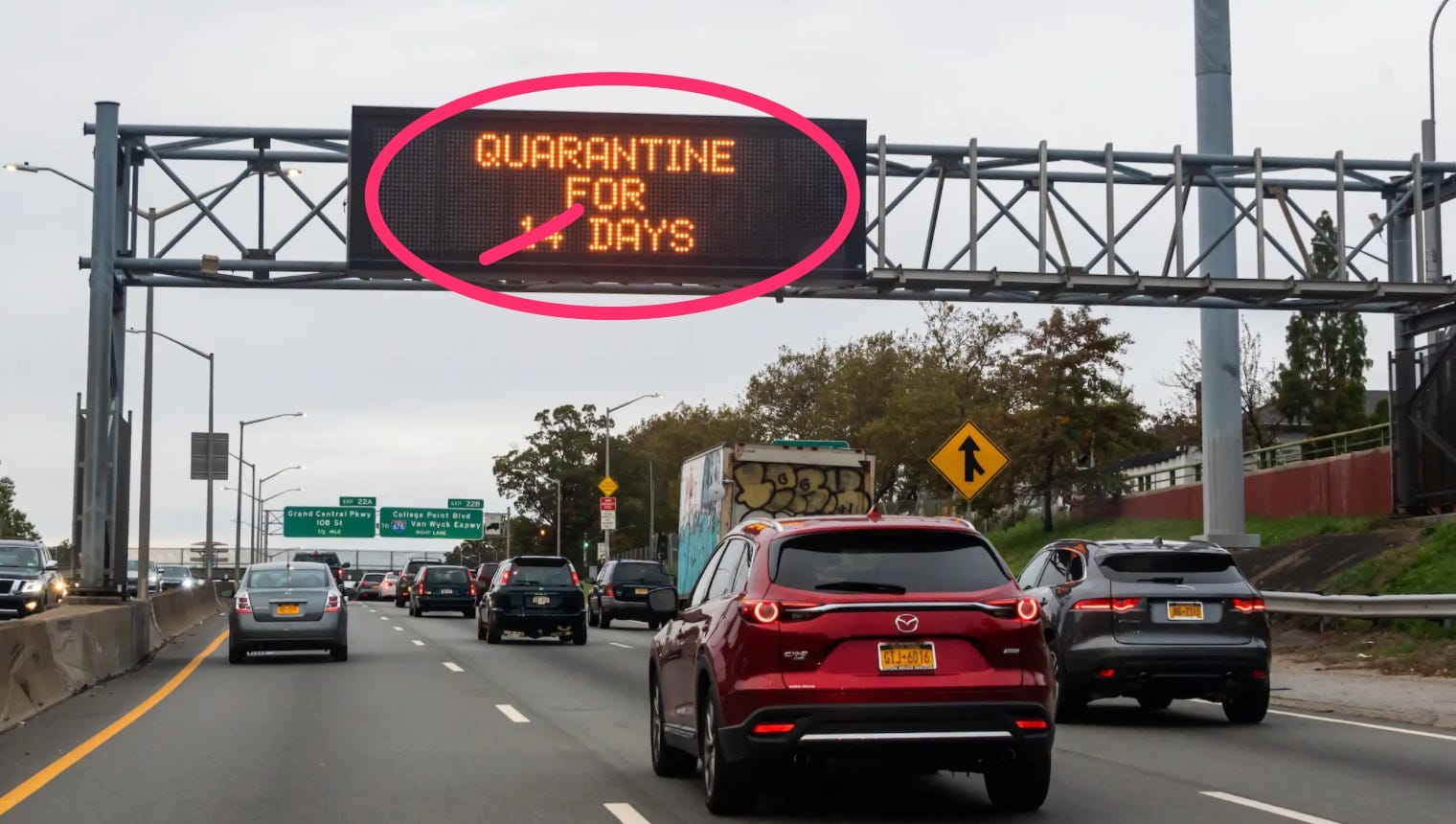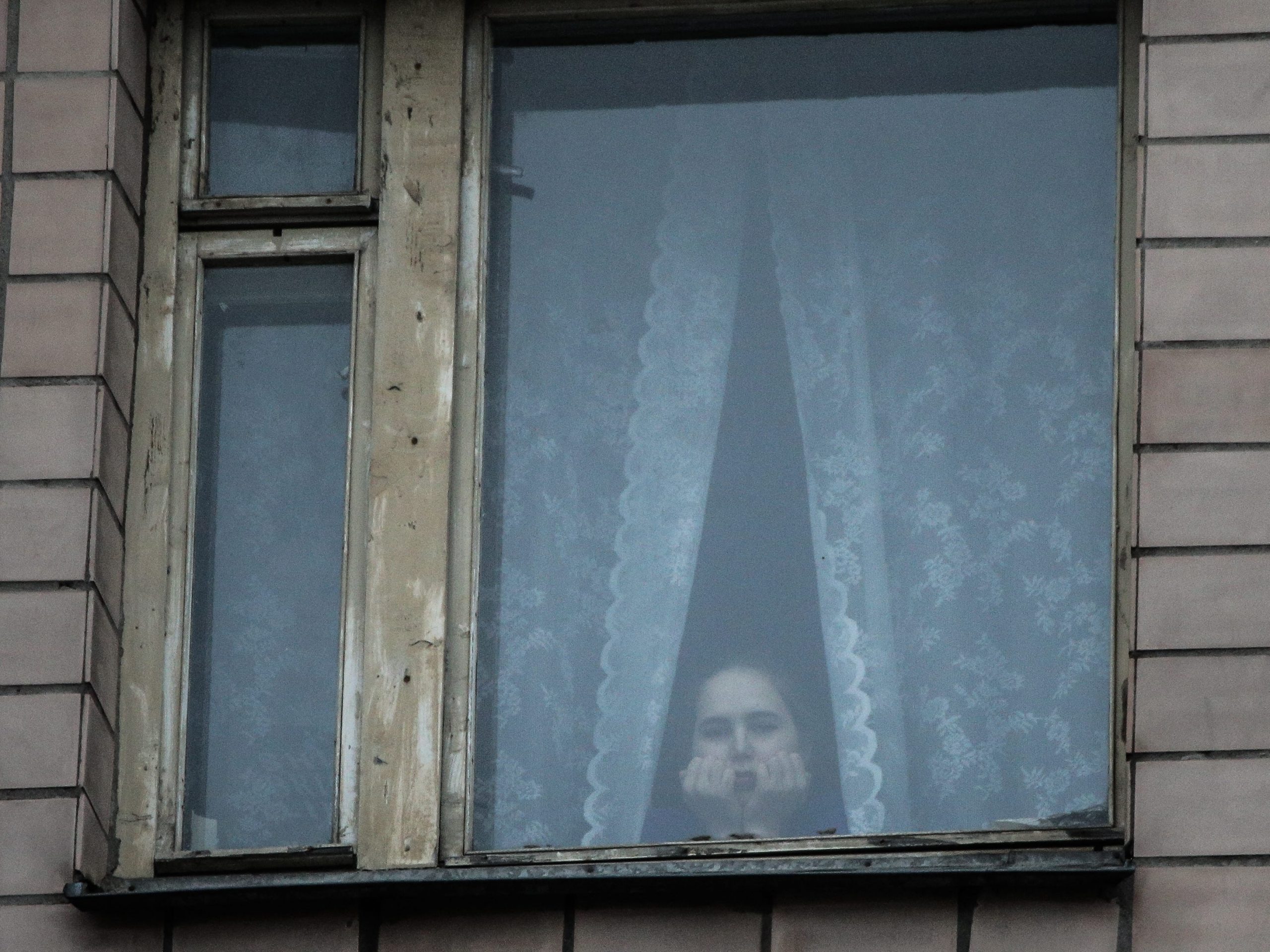
Noam Galai/Getty Images, Business Insider
- The US Centers for Disease Control and Prevention has lowered its coronavirus quarantining recommendations for people who’ve been exposed to someone with COVID-19.
- The CDC used to say that people who’ve been exposed to others with COVID-19 need to isolate away from unexposed people for 14 days.
- But there’s a lot of new evidence that the infectious period for this virus, in most people, is shorter than that.
- In new recommendations announced Wednesday, the CDC said 10 days is enough time in quarantine, and lowered the timeline to just 7 days if the person quarantining registers a negative COVID-19 test.
- Visit Business Insider’s homepage for more stories.
Forget about spending two weeks in quarantine if you’ve been exposed to the coronavirus. 10 days is enough — or — one full week will suffice, with a negative test.
The US Centers for Disease Control and Prevention announced Wednesday that the agency is lowering its quarantining timeline recommendations for the coronavirus, asking people to isolate themselves from others for ten days (not 14) if they have had close contact with someone who has COVID-19, the disease caused by the coronavirus.
People who’ve been exposed, and who get tested while in quarantine, can resume normal life after just seven days, halving the CDC’s original timeline.
Studies show that the most dangerous time for coronavirus infections to spread to new people happens very early on in illnesses, both before and during the first week that someone is sick. So, it’s far more important to have people following strict quarantine protocols when they are first coming down with COVID-19.
But that infectious period doesn’t happen immediately after exposure to a sick person.
It usually takes 4 to 5 days of incubation for people to start to get sick (this is why test results gathered too early can be negative). People who are coming down with the coronavirus seem to transmit their viruses to new people most both before and just as they start to show symptoms.
That means if quarantiners were to end up sick, they would most likely pass on their infections to others in the 10 days after they were exposed.
14 was a 'pretend' number, concocted before scientists understood how this virus spreads best

Getty
Osmosis CEO Dr. Rishi Desai, who used to teach people how to quarantine for the CDC, has said before that there was never any real precision to quarantining rules for the coronavirus, which were developed well before scientists had a chance to study how and when the virus travels best between people.
"14 is a pretend number, right? Like, why not 13?" Desai told Insider. "It's because it rounds to two weeks, and people can remember two weeks. So, there's no magical reason why 14 days was chosen other than it's just easy to remember."
Though people can still go on to shed virus for weeks or even months after they get sick, they are most likely to pass their illnesses on to others just as they are beginning to feel ill, which is why wearing masks has become such a key recommendation for preventing the spread: it's easy to get other people sick before you know you're doing it.
"You could be in the restaurant, feeling perfectly well, and start to get a fever," the World Health Organization's Executive Director of Health Emergencies, Mike Ryan, said earlier this year, explaining how this pre-symptomatic spread happens. "It's because the disease can spread at that moment that the disease is so contagious. That's why it's spread around the world in such an uncontained way."
A recent review of 79 different studies in the Lancet Microbe couldn't find any evidence of live virus in people after their ninth day of illness, and viral load, too, generally peaks in the first week ( viral load can stay high much longer in immunocompromised patients).
Some people can, and do, continue to test positive for the virus for many weeks and months after their illness begins, but there's no good evidence that they're necessarily passing any of their illnesses along to others for much longer than the first six days of an infection.
It may also be the case that asymptomatic patients (who never show any outward signs of illness) may have some of the shortest periods of contagiousness, but researchers aren't sure about that just yet. It's best for anyone who's been exposed to the virus, no matter how well they might feel, to abide by the full seven to ten day quarantining timeline, and make sure they themselves are not becoming ill before heading back out into the world.

